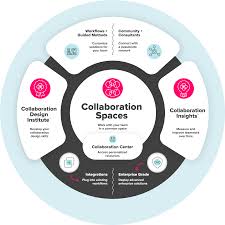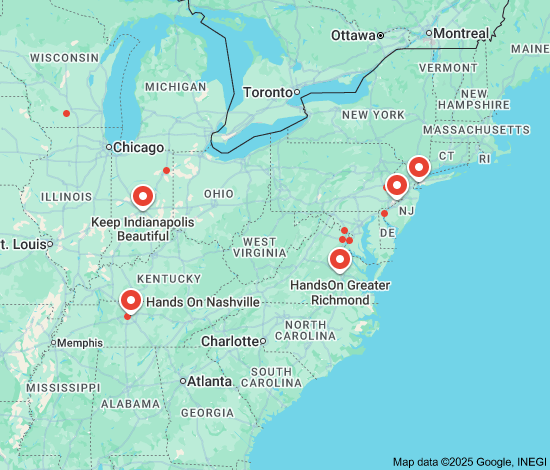The Power of Volunteer Work
Volunteer work plays a crucial role in building stronger communities and making a positive impact on society. Whether it’s helping the less fortunate, protecting the environment, or supporting important causes, volunteers are the backbone of many organizations and initiatives.
One of the key benefits of volunteer work is the opportunity to give back to the community. By dedicating their time and skills to various projects and programs, volunteers contribute to the well-being of others and make a difference in people’s lives. This sense of fulfillment and purpose is often cited as a motivating factor for individuals to engage in volunteer work.
Volunteering also provides valuable learning experiences. Volunteers have the chance to acquire new skills, gain hands-on experience, and broaden their perspectives by interacting with people from diverse backgrounds. These experiences not only benefit the volunteers themselves but also help them become more empathetic and socially aware individuals.
Furthermore, volunteer work fosters a sense of community and connection among individuals. Working together towards a common goal creates bonds and friendships that transcend differences and unite people in shared values and aspirations. This sense of unity can lead to greater social cohesion and collective action towards addressing pressing issues.
Volunteers are essential partners in driving positive change in society. Their dedication, passion, and commitment inspire others to get involved and make a difference. By volunteering their time and talents, individuals demonstrate that small acts of kindness can have a ripple effect that creates lasting impact.
In conclusion, volunteer work is a powerful force for good that benefits both individuals and communities alike. Whether through local initiatives or global campaigns, volunteers play a vital role in shaping a more compassionate, inclusive, and sustainable world for all.
Top 8 Questions About Getting Started with Volunteer Work
- 1. How can I find volunteer opportunities in my area?
- 2. What are the benefits of volunteering?
- 3. How much time do I need to commit to volunteer work?
- 4. Are there age restrictions for volunteering?
- 5. What skills or experience do I need to volunteer?
- 6. Can volunteering help me build my resume or gain work experience?
- 7. What types of organizations or causes can I volunteer for?
- 8. How can I get started with volunteering if I have never done it before?
1. How can I find volunteer opportunities in my area?
Finding volunteer opportunities in your area can be a rewarding and fulfilling experience. One way to discover volunteer opportunities is by reaching out to local nonprofit organizations, community centers, or religious institutions that often host volunteer programs. Additionally, online platforms such as volunteer websites and social media groups dedicated to volunteering can provide a wealth of information on available opportunities in your area. Networking with friends, family members, or colleagues who are involved in volunteer work may also lead you to valuable connections and recommendations for meaningful ways to give back to your community. By exploring these avenues and staying proactive in your search, you can uncover diverse and impactful volunteer opportunities that align with your interests and values.
2. What are the benefits of volunteering?
Volunteering offers a multitude of benefits that extend beyond just helping others. One of the primary advantages of volunteering is the sense of fulfillment and purpose it provides. By contributing time and effort to meaningful causes, volunteers experience a profound satisfaction in making a positive impact on their communities. Additionally, volunteering offers valuable opportunities for personal growth and skill development. Volunteers often acquire new skills, gain practical experience, and expand their horizons through interactions with diverse groups of people. Furthermore, volunteering fosters a sense of connection and camaraderie, creating a supportive community where individuals can come together to work towards common goals. Ultimately, the benefits of volunteering are not only felt by those being helped but also by the volunteers themselves, who gain a deeper appreciation for empathy, altruism, and social responsibility.
3. How much time do I need to commit to volunteer work?
The time commitment required for volunteer work can vary depending on the organization, project, or role you choose to undertake. Some volunteer opportunities may only require a few hours of your time per week, while others may involve more intensive commitments such as full-day events or ongoing projects. It’s important to communicate your availability and preferences with the organization you are volunteering for to ensure that the time commitment aligns with your schedule and expectations. Remember that even small contributions of time can make a meaningful impact, so don’t hesitate to explore volunteer opportunities that fit your availability and interests.
4. Are there age restrictions for volunteering?
Age restrictions for volunteering can vary depending on the organization and the nature of the volunteer work. While some volunteer opportunities may have minimum age requirements due to safety concerns or the complexity of the tasks involved, many organizations offer opportunities for volunteers of all ages to get involved. Some organizations may have specific programs tailored for younger volunteers, while others may require adult supervision for minors. It’s important for individuals interested in volunteering to inquire about any age restrictions and explore the diverse range of opportunities available that align with their age and capabilities.
5. What skills or experience do I need to volunteer?
When considering volunteer work, individuals often wonder about the skills or experience required to make a meaningful contribution. The beauty of volunteering is that there is a wide range of opportunities available for individuals with diverse backgrounds and abilities. While some volunteer roles may require specific skills or expertise, many organizations welcome volunteers with a willingness to learn and contribute. Whether you have professional experience in a particular field or simply a passion for helping others, there is likely a volunteer opportunity that aligns with your interests and strengths. Ultimately, the most important qualities for volunteering are enthusiasm, dedication, and a genuine desire to make a positive impact in the community.
6. Can volunteering help me build my resume or gain work experience?
Volunteering can be a valuable way to enhance your resume and gain relevant work experience. By participating in volunteer work, you can develop and showcase important skills such as communication, teamwork, leadership, problem-solving, and project management. These experiences not only demonstrate your commitment to giving back to the community but also highlight your ability to contribute meaningfully in a professional setting. Employers often appreciate candidates who have a track record of volunteering as it showcases their initiative, passion, and dedication to personal and professional growth. Additionally, volunteering can provide networking opportunities that may lead to potential job prospects or mentorship relationships in your desired field.
7. What types of organizations or causes can I volunteer for?
When considering volunteer work, individuals have a wide range of organizations and causes to choose from based on their interests, skills, and values. Opportunities for volunteering exist in various sectors such as community service, environmental conservation, animal welfare, healthcare, education, social justice, and more. Whether one is passionate about supporting underserved populations, protecting the environment, advocating for human rights, or assisting in disaster relief efforts, there are numerous organizations and causes seeking dedicated volunteers to make a positive impact in their respective fields. By exploring different options and finding a cause that resonates with them personally, individuals can contribute meaningfully to society through their volunteer work.
8. How can I get started with volunteering if I have never done it before?
For those new to volunteering, getting started is easier than you might think. Begin by identifying your interests and passions to find a cause that resonates with you. Research local organizations or nonprofit groups that align with your values and reach out to them to inquire about volunteer opportunities. Many organizations offer orientation sessions or training programs for new volunteers to get acquainted with their mission and activities. Don’t be afraid to ask questions, express your skills and availability, and be open to trying different roles until you find the right fit. Remember, volunteering is a rewarding experience that not only benefits others but also enriches your own life in meaningful ways.




Leave a Reply